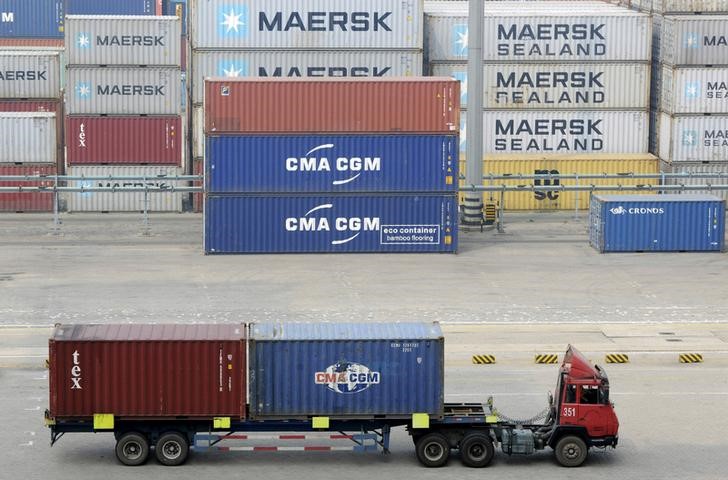 © Reuters. China to raise export tax rebates amid trade war
© Reuters. China to raise export tax rebates amid trade warBEIJING (Reuters) – China will increase export tax rebates from Nov. 1 and quicken export tax rebate payments to support foreign trade, the cabinet said on Monday, as a trade war with the United States escalates.
The rise in export tax rebates will “help reduce costs for the real economy, help it cope with the complex international situation and maintain stable foreign trade growth”, the cabinet said after a regular meeting.
The move conforms to rules of the World Trade Organization (WTO), it said.
The tax rebate will be raised to 16 percent for those exports currently getting a rebate of 15 percent or 13 percent, the cabinet said.
The rebate will be raised to 10 percent for those exports that currently get a 9 percent rebate, though the rebate will be raised to 13 percent for some, the cabinet said.
The rebate will be raised to 6 percent for exports currently getting a 5 percent rebate, though for some it will be raised to 10 percent.
In September, China raised export tax rebates for 397 items, including steel and electronic products, in a bid to help exporters as the tariff war with the United States worsened.
Chinese policymakers have been stepping up support for the slowing economy as the full impact of U.S. trade tariffs has still to be felt.
Local governments will quicken special bond issuance for shanty-town redevelopment but they will be barred from engaging in fund-raising in the name of such housing projects, the cabinet said after a regular meeting.
China has injected hundreds of billions of dollars of policy loans into redevelopment of shanty-towns. Analysts say the project has boosted property demand as residents are encouraged to use cash compensation to buy a new home when their existing home is demolished.
Fusion Media or anyone involved with Fusion Media will not accept any liability for loss or damage as a result of reliance on the information including data, quotes, charts and buy/sell signals contained within this website. Please be fully informed regarding the risks and costs associated with trading the financial markets, it is one of the riskiest investment forms possible.
Source: Investing.com




























